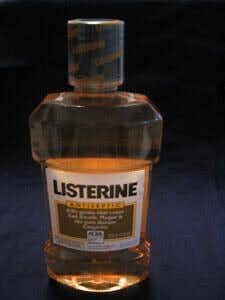
When biting critters like mosquitoes and ticks carry dangerous diseases, as they often do nowadays, people need to pay close attention to keeping them away. The gold standard for bug repellents is DEET (diethyltoluamide), which has been used by the US Armed Forces since 1946. DEET is quite effective, but it has some drawbacks, including its ability to melt certain plastics and synthetic clothing. Is there another bug spray that would work?
An Unorthodox Bug Spray:
Q. You’ve written about bug spray and I want to share my solution. I apply Listerine to my arms and head before I work outside. I have never gotten bitten when I do this. The effect lasts for at least three hours.
A. So far as we know, Listerine has not been tested as a mosquito or tick repellent. However, you are not the only one who has used this product to keep bugs away.
Another reader wrote:
“Amber Listerine antiseptic has eucalyptus oil in it. I keep a spray bottle with a 50 percent solution mixed with water handy when I’m planning to go outside in the grass or at dusk when the mozzies are around.”
(“Mozzies” is Australian slang for mosquitoes. Perhaps it is fitting that eucalyptus trees are native to Australia.)
Some readers have suggested that spraying amber Listerine around a picnic table or other outdoor area discourages mosquitoes. Again, however, scientists have not tested and confirmed this use of Listerine.
Bug Spray Approved by the FDA:
People who prefer repellents that have been tested and found effective will want to look for products with DEET, oil of lemon eucalyptus or picaridin. DEET and picaridin also diminish the likelihood of attracting ticks. along with compounds called IR3535 and KBR3023 (Pages et al, Vector Borne Zoonotic Diseases, Feb. 2014).
Shoes, socks and pants legs impregnated with permethrin deter ticks as well. These are especially helpful for people who spend time outdoors in brushy areas but don’t want to apply bug spray to their skin.
When ticks, biting flies or midges are more troublesome than mosquitoes, wearing treated clothing and applying IR3535, oil of lemon eucalyptus or picaridin works better than relying on DEET bug repellent along (Diaz, Wilderness & Environmental Medicine, March 2016). Checking the skin carefully for ticks after spending time outside is an essential step in protecting yourself from tick-borne diseases such as Lyme disease or alpha-gal allergy.

